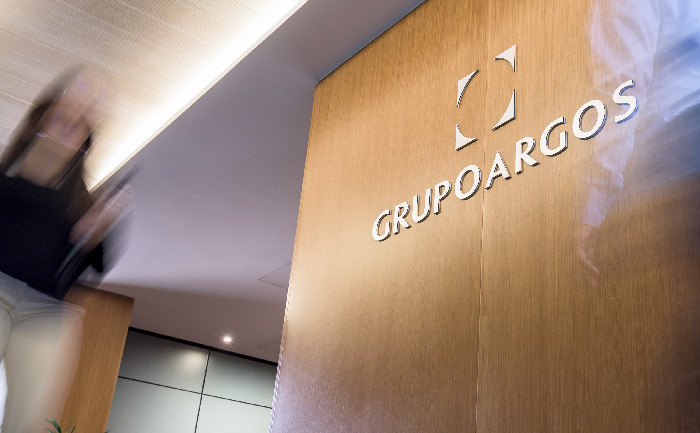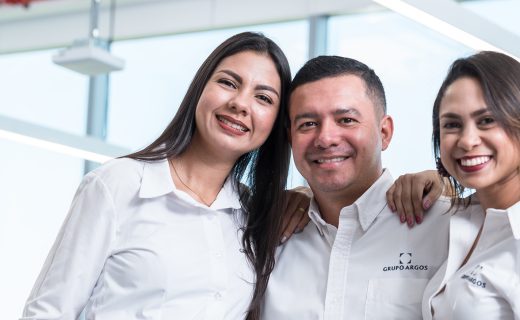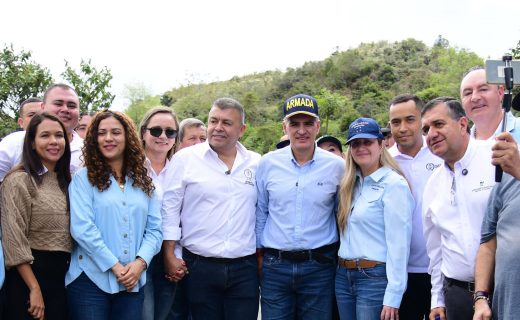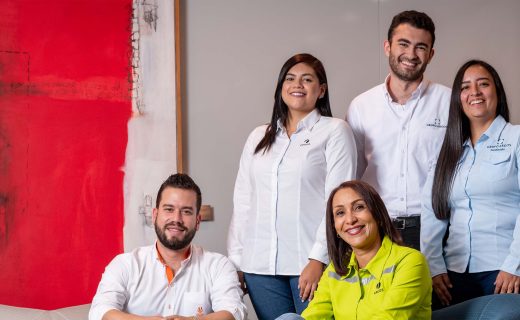

With more than COP 24 billion, the Argos Business Group stands out among the organizations that voluntarily contributed the most to mitigate the effects of the pandemic in Colombia
8 July 2021- This was ratified by the Private Social Investment Index, a monitor that recognizes companies that develop practices in the country that contribute to sustainability in aspects of corporate social responsibility, relationship with suppliers, gender equity, inclusion and private social investment.
- The Index highlighted Grupo Argos as one of the most outstanding companies for its social investment practices and placed it in position 8 among participating companies. For their part, Cementos Argos and Celsia ranked 3rd and 9th, respectively. The organization invested more than COP 24 billion during 2020 in initiatives to mitigate the social effects generated by the pandemic and in projects for rural development, education, art, culture and care for the environment.
- The consolidated investment benefited more than 400,000 people.
Grupo Argos and its businesses, Cementos Argos and Celsia, were highlighted for the second consecutive year in the Private Social Investment Index published by Jaime Arteaga y Asociados in alliance with Semana and the United States Agency for Development, which measures best practices of social investment in the country. Grupo Argos stood out in position 8, while its cement and energy businesses ranked 3 and 9, respectively.
During the organization, it made every effort to support the country on two fronts: strengthening the health system to attend the pandemic with ICU beds and providing biosafety elements, and food security for the most vulnerable populations with alliances for the delivery of markets for more than 116,000 families. These contributions stemmed from the total conviction of mobilizing and joining efforts to move forward as a country, creating social value and inspiring other institutions to join in with resources and capabilities.
The investments of Grupo Empresarial Argos in 2020 amounted to more than COP 24 billion and were concentrated on two fronts: supporting the mitigation of the effects produced by the pandemic in Colombia and contributing to social welfare through rural development projects, education, art, culture and caring for the environment through the protection of forests, biodiversity and water conservation. The beneficiaries of these social investments were people living in poverty and children, young people in rural and vulnerable areas. In total, the number of people benefited amounted to 400,000.
Mas noticias
-
 Employer Brand
Employer Brand -
 Talent
TalentOver 2,800 Employees Trained in Diversity and 57% Female Representation on the Board of Directors: Grupo Argos Advances Its Equity and Inclusion Strategy
15 April 2025 Read more -
 Creamos Valor Social
Creamos Valor SocialMore than 25,000 people will benefit from the improvement of the Alto de la Quiebra – Santo Domingo road, developed through the Works for Taxes mechanism
9 April 2025 Read more -
 Talent
TalentAccess to postgraduate programs: one of the talent development benefits that more than 200 Grupo Argos employees have used in recent years
8 April 2025 Read more -
 Employer Brand
Employer BrandMore than 1,800 employees from Grupo Argos companies went through internal mobility processes during 2024, with 27% of them being promotions
3 April 2025 Read more
